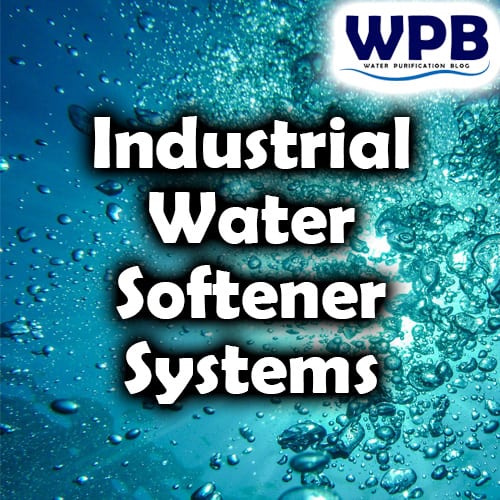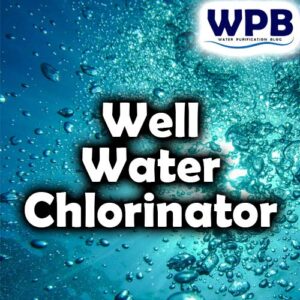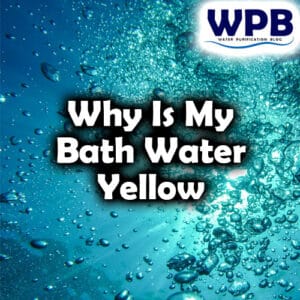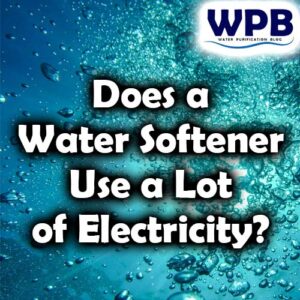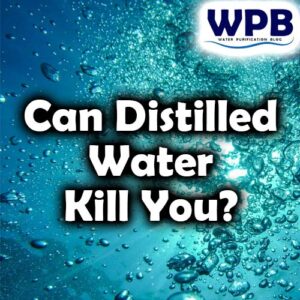Introduction to Industrial Water Softener Systems
Water softening is the process of replacing calcium and magnesium ions from water with sodium ions.
Water filters called water softeners are used to soften water and perform this process.
Water softeners are filled with special ion-exchange resin that perform this ion exchange process of water softening. Calcium and magnesium ions from water bind to the ion exchange resin, and an equivalent amount of sodium ions is released from the resin.
Table of Contents
Of course, this replacement cannot last indefinitely and is limited by the amount of sodium ions in the ion exchange mass of the softener.
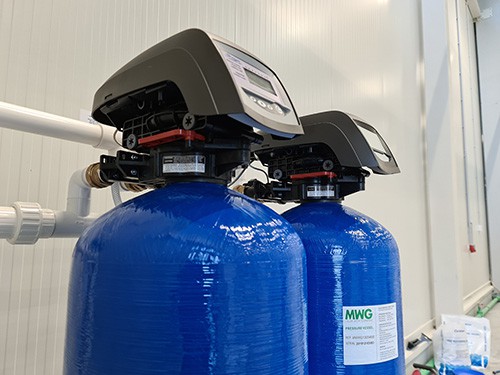
The resulting sodium salts (unlike calcium and magnesium salts) are extremely soluble in water and do not form hard scale deposits.
Sodium bicarbonate, which is formed from carbonate hardness, is the well-known baking soda. It is important to note that water softening leaves an equivalent amount of salt the same as before the water softener, but these salts after water softening are in the form of sodium and do not form limescale.
The benefits of Industrial Water Softener Systems
Water softening has the main advantage, that after the water softener there is no more limescale formation, glass packaging washed with softened water remains crystal clear, textiles washed with soft water are much softer because there is no crystallization of limescale on its fine fibers, and in addition, consumption is significantly reduced detergents.
One of the most important uses of water softeners is as a chemical water treatment for boiler rooms.
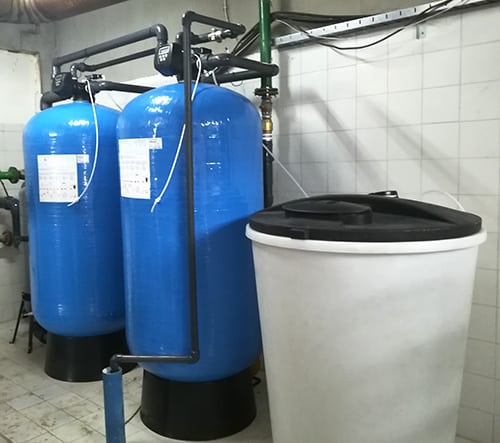
For the previously mentioned reasons and advantages, water softening and softeners are used in households, for the preparation of boiler feed water for boilers with lower working pressures, in hotels, motels, in car washes for the preparation of water for washing vehicles, laundries, when washing glass packaging during procedures bottling of various products, restaurants and kitchens of catering establishments, as well as in all places where water hardness can cause certain problems.
Automatic water Softener Systems control valves
Control valves serve to ensure fully automatic operation and regeneration of the industrial water softener systems.
Autotrol, Clack, Fleck, Siata are some of the most reliable control valves.
They monitor the amount of softened water through a built-in flow meter in the control valve and performs fully automatic control of the softener.
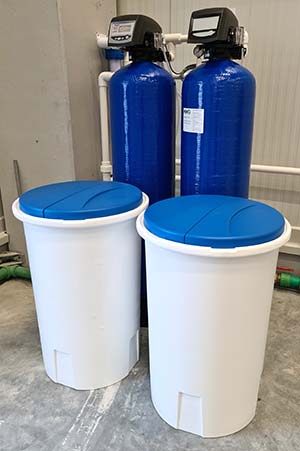
Water Softener Systems Control valve display
On the display of the controller, usually the current water flow through the water softener, the remaining working capacity until regeneration, as well as the current phase of regeneration, if it is in progress, can be seen and monitored at any moment.
Through the display and control valve buttons, all parameters can be read and the softener can be programmed and adjusted.
Also, in the memory operating data can be stored for later analysis.
Necessary connections for softener operation
To connect and operate the water softener, you need an inlet water supply (hard water connection), an outlet water connection for softened water from the softener, a drain connection for draining water during regeneration, a single-phase socket for powering the softener controller.
Understanding the Significance of Water Softener Systems
Water softener systems play an exceptionally important role in industrial water purification by effectively eliminating water hardness.
Hard water, characterized by high mineral content, can have damaging effects on industrial processes and equipment.
By using water softener systems, different industries can optimize their operations and maintain the longevity of their equipment.
The Impact of Hard Water in Industrial Settings
- Scale Formation: In industrial scale water softening plants, the effluent flow from the re-generation process can lead to scale formation, which can impede the functionality of sewage systems. Scaling can restrict flow, reduce heat transfer efficiency, and increase energy consumption. However, with the integration of efficient water softener systems, these issues can be mitigated.
- Soap Inefficiency: The slippery feeling experienced while washing with soft water, as described in, is a result of the reduced attraction between soap and the water ions when mineral content is removed. This decreased effectiveness of soap in hard water can lead to excessive soap usage and inadequate cleaning, which are major concerns for industries reliant on rigorous cleanliness standards.
Conclusion
In conclusion, water softener systems are integral components of industrial water purification, and understanding their significance can give your industry a competitive edge.
By using soft water, you can optimize your industrial processes, minimize operational costs, and uphold the highest standards of quality and efficiency.

Who am I?
I am working as a water treatment technical manager and I have more than 25 years of practical experience in water purification.
Water purification expert
After many years of experience in water purification, I want to share some of my knowledge and get people to know the real importance of water quality.
Water purification and water treatment are very complex themes, so it is important to explain them in an easy-to-read way.
On this blog, you will find many understandable, easy-to-read information about water purification.
I hope you enjoy it, find some useful information, and thank You for reading.
More info on my work and my expertise on water purification can be found on my LinkedIn profile.

